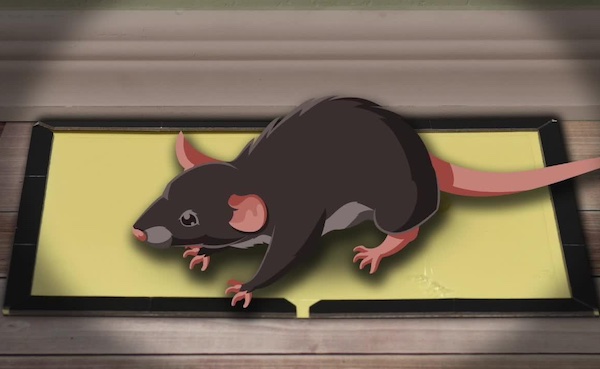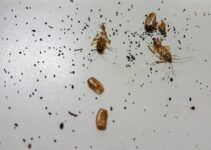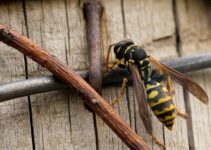Glue traps are made of cardboard and strong adhesives typically designed to trap rodents. Once trapped, mice try everything in their power to escape. If all attempts fail, they eventually die.

How Long Does it Take for a Mouse to Die on a Glue Trap?
Glue traps capture mice alive, which means they can take a shot at trying to escape the glue. While this is unlikely, if the adhesive on the trap is fake or has expired, mice can easily get out. They either have to remove some fur, peel their skin or tear a limb.
However, in a case where the glue trap is very strong and there is no way of escape for mice, they die from exhaustion, starvation, dehydration, and suffocation. The whole process may take 3 to 24 hours or more.
Can a Mouse Survive a Glue Trap?
If a mouse has just a limb stuck on a glue trap, it has a high chance of escaping and surviving afterward. However, if mice peel their skin or tear a limb, they may escape the trap but would likely die of blood loss, pain and exhaustion.
How Do You Dispose of a Dead Mouse in a Glue Trap?
Once a mouse is found dead in a glue trap, these are the steps required to properly dispose of the rodent:
- As always, put on your protective gloves. You will also be needing a disinfectant or bleach-and-water mixture, and a plastic bag.
- Spray the dead mouse, glue trap, and area near where the mouse was set up with disinfectant. If you do not have a disinfectant, a bleach-and-water mixture would suffice.
- Place the glue trap containing the mouse in a plastic bag. This should be done alongside rodent-related materials such as feces, crumbles, and nesting material.
- Seal the plastic bag carefully. If it is not properly sealed, you risk exposing everyone to germs, bacteria, and viruses the mouse may be carrying.
- Place this bag into another bag and seal it before throwing it in the trash. You should also throw your gloves in the trash.
- Wash your hands with soap and water after completing the procedure.
Do Mice Know How to Avoid Glue Traps?
Mice are smart rodents. They will naturally steer clear of baited locations once they notice it is responsible for the death of their colleagues. They can also smell themselves on traps and avoid such traps.
Some may even find their friend squeaking on glue traps and declare that spot a “danger zone” for the entire group. One way to outsmart them is by changing the location of the traps regularly.
Other Methods Of Rodent Control
Aside from glue traps, there are other ways to control rodents without killing them:
1. Eliminate Food Sources
Rodents will only be found in environments with enough food. To send them out of your home, you must:
- Ensure your home is free of crumbles.
- Store pet food in secure locations and in a chew-proof container.
- Make sure the grasses in your garden are trimmed regularly. Fallen fruits and vegetables must also be removed before mice find them.
2. Use Repellents on Active Sites
Mice are known to reside in cracks, holes, or gaps where they cannot be disturbed by humans. You may not be able to get access to them but repellents such as ammonia-soaked rags or cotton balls will do just that.
Ensure you seal all entry points once they have all been fully repelled to avoid repeating the process.
3. Live-Trapping Mice
Live traps usually take the shape of cube traps and bucket traps. They are designed to capture mice alive and leave you with the decision to release them into the wild or transport them to a wildlife rehabilitator.
These traps must be cleaned before being reused. The same applies when not in use. Failure to do so may deter rodents and render them inefficient.
Conclusion
While most mice die on glue traps, the routine of disposal practiced by most people is wrong. Never reuse a glue trap with traces of mice and dispose of gloves used during the exercise.
If you cannot thrash mice and glue traps properly, contact exterminators. They are trained with clever techniques in driving mice out of your home without disturbing day-to-day activity.
References
- https://www.hsi.org/news-media/glue-traps-faqs/
- https://www.humanesociety.org/animals/resources/facts/glue_boards.html
- https://www.cdc.gov/cdctv/healthyliving/hygiene/fight-germs-wash-hands.html
- https://www.orkin.com/rodents/mouse-control/how-mice-enter-homes/
- https://www.catseyepest.com/important-updates/facts-about-mouse-glue-traps/


![Are Glue Traps Illegal? [Brutally Honest Answer] Are Glue Traps Illegal? [Brutally Honest Answer]](https://homestuffmag.com/wp-content/uploads/2022/09/are-glue-traps-illegal-211x150.jpg)


